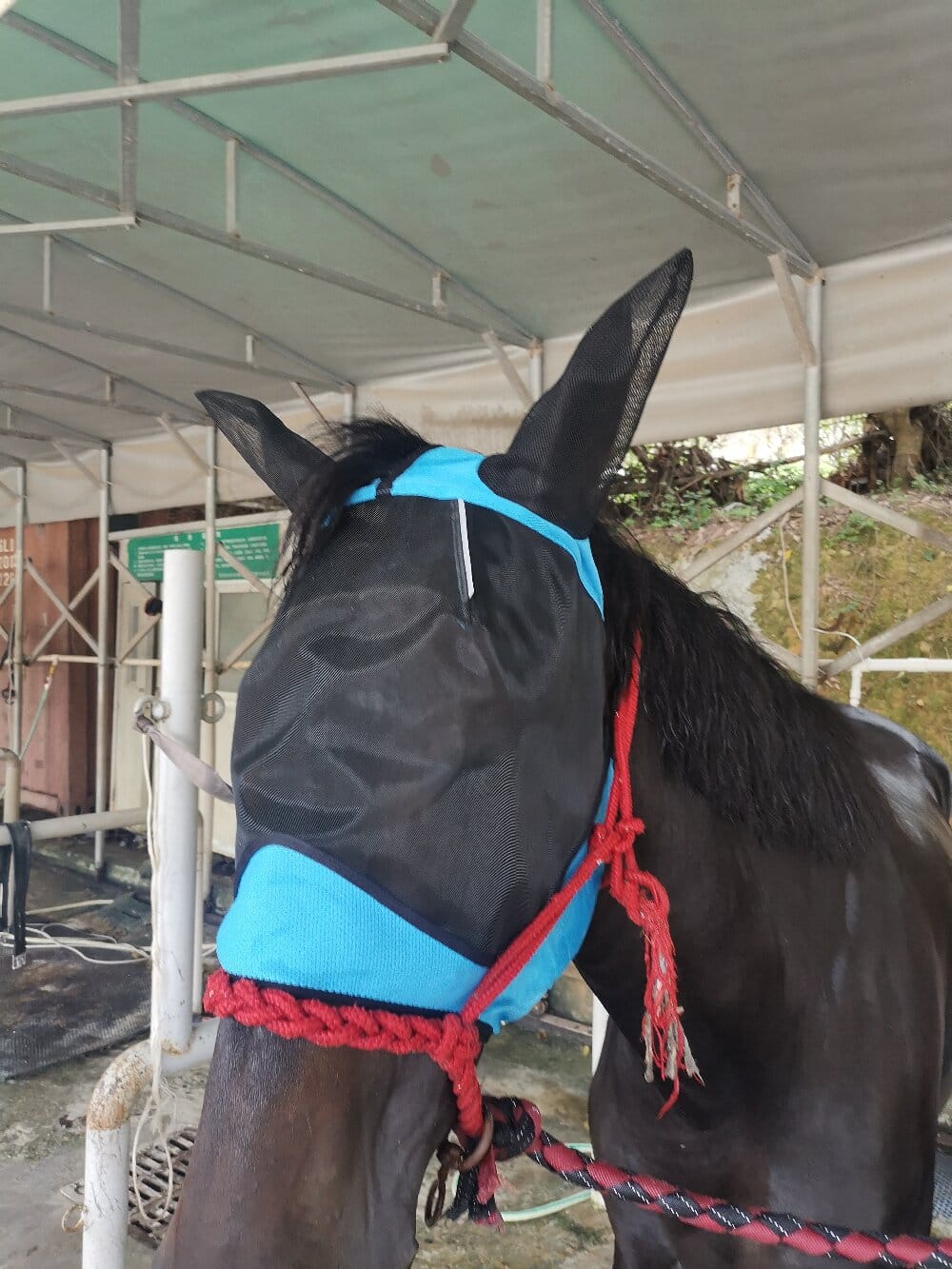A horse fly mask is an essential piece of equine gear designed to protect horses from irritating and potentially harmful insects. Flies, gnats, and other pests can cause discomfort, stress, and even infections for horses, making protective measures crucial. Whether you own a competition horse, a pasture companion, or a working animal, understanding the benefits and types of fly masks can help you make an informed decision for your equine friend.
The Problem: How Flies Affect Horses
Flies are more than just a nuisance—they can pose serious health risks to horses. Persistent biting insects like horseflies and deer flies can cause:
- Skin irritation and allergies: Constant biting leads to itching, swelling, and dermatitis.
- Eye infections: Flies carry bacteria that can cause conjunctivitis and other ocular issues.
- Stress and behavioral issues: Horses may become agitated, leading to reduced performance or injuries from excessive head shaking.
Without protection, horses may develop long-term problems that require veterinary intervention.
Solving the Problem: How a Horse Fly Mask Helps
A well-fitted fly mask acts as a barrier against pests while allowing for clear vision and breathability. Key benefits include:
- UV protection: Many masks offer sun shielding to prevent sunburn on sensitive facial areas.
- Reduced eye infections: Mesh screens block flies from reaching the eyes.
- Comfortable wear: Lightweight materials ensure horses can graze and move freely without irritation.
For horses with light-colored faces or those prone to sun sensitivity, a fly mask with UV protection is particularly beneficial.
Choosing the Right Horse Fly Mask
Not all fly masks are created equal. Consider these factors when selecting one:
- Material: Look for durable, breathable fabrics like polyester mesh.
- Fit: A snug but comfortable fit prevents rubbing and ensures full coverage.
- Additional features: Some masks include ear covers, extended nose flaps, or reflective strips for visibility.
For horses with allergies or sensitive skin, hypoallergenic options are available to minimize irritation.
Common Concerns and Misconceptions
Some horse owners hesitate to use fly masks due to misconceptions. Let’s address a few:
- “Masks restrict vision”: High-quality masks use fine mesh that doesn’t obstruct a horse’s sight.
- “They cause overheating”: Breathable designs allow airflow while keeping pests away.
- “Horses won’t tolerate them”: Most horses adapt quickly, especially if introduced gradually.
Proper sizing and gradual acclimation can resolve most concerns.
Maintenance and Care Tips
To ensure longevity and hygiene, follow these care guidelines:
- Regularly wash the mask with mild soap and water to remove dirt and sweat.
- Inspect for tears or loose stitching that could compromise protection.
- Rotate between multiple masks if your horse wears one daily.
A well-maintained fly mask will last multiple seasons, providing consistent protection.
Final Thoughts: A Simple Solution for a Big Problem
A horse fly mask is a small investment with significant returns in equine health and comfort. By preventing insect-related issues, reducing stress, and offering UV protection, these masks contribute to a happier, healthier horse. Whether your horse spends time in the pasture or competes in events, incorporating a fly mask into their routine is a proactive step toward better well-being.

